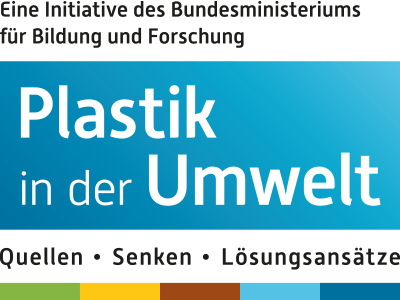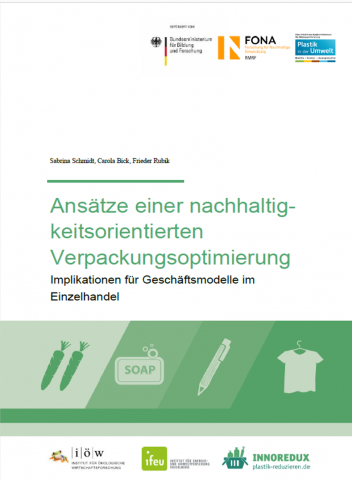Approaches to sustainability-oriented packaging optimisation
Approaches to sustainability-oriented packaging optimisation
Packaging volumes are continuously increasing in Germany. Plastic packaging, with its short lifespan and low global recycling rates, contributes to the accumulation of macro and micro plastics in the environment. Merely switching to glass and cardboard packaging does not appear to be an appropriate solution, as LCA studies suggest. Instead a reduced production of packaging contributes to mitigating the problem, thus opening a field of action for retail companies.
The report describes the possible consequences of introducing new packaging solutions in a differentiated manner at business model level with the help of the Business Model Canvas (Osterwalder & Pigneur, 2011) and uses it to develop types of packaging-reducing business models in the retail trade. The types differ according to the value-added stage (delivery/storage vs. sale/disposal) and to some extent according to the type of retail trade (bricks-and-mortar vs. online) and thus take transport, product and shipping packaging into account equally. The Business Model Canvas is a tool widely known among practitioners and should increase the probability of a convenient application in companies. Managers can explore which packaging innovations are suitable for their company and assess which changes would go hand in hand with them. This reduces uncertainties in the otherwise complex innovation processes.
Sabrina Schmidt, Carola Bick, Frieder Rubik (2020): Ansätze einer nachhaltigkeitsorientierten Verpackungsoptimierung: Implikationen für Geschäftsmodelle im Einzelhandel. Report of the joint research project Innoredux.

